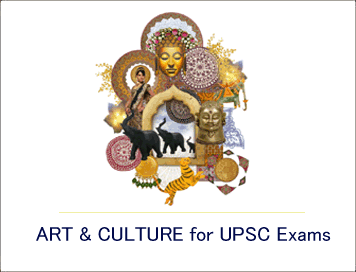(HOT) UPSC Current Affairs 2025 PDF
NEW! The Gist (NOV-2025) | E-BOOKS
Languages Of India : Art & Culture for UPSC Exams

Languages Of India : Art & Culture for UPSC Exams
Culture is a central instrument of discovering, integrating and asserting the national identity of India which truly and inevitably pluralistic. Culture permeates every sphere of human activity, determines and governs life and pattern of Indian society in diverse regions and equality, diverse fields.
LANGUAGES OF INDIA
India is home to several hundred languages. Most languages spoken in India belong either to the Indo Aryan and Dravidian families of la nguages though some Indo-European languages are also spoken and understood.
The Indo - Aryan languages including Hindi, Rajasthani, Gujarati, Marathi, Bengali, Oriya, Assamese, Sanskrit, Kashmiri, Sindhi and Punjabi cover a bout three - four ths of India’s population.
The languages of the Southern India viz Telugu, Tamil, Kannada and Malayalam belong to the Dravidian family.of the Indo-European languages, English is the most widely used one.
Official Languages
The Indian Constitution, in 1950, declared Hindi in Devanagari Script to be the official language of the union. It was provided in the Constitution of India that English shall continue to be used for all official purposes of the Union till January 25, 1965 but the complet e change over to Hindi was not practicable within the stipulated period. So English in addition to Hindi , continues to be used for all official purposes as an associate official language.
THE LANGUAGES OF THE EIGHTH SCHEDULE OF THE CONSTITUTION
22 Major languages are specified in the eighth schedule of the constitution. Those are Assamese, Bengali, Bodo, Dogri, Gujarathi, Hindi, Kananda, Kashmiri, Konkani, Maithili, Punjabi, Sanskrit, Santhali, Sindhi, Tamil, Telugu, Urdu, Malayalam, Manipuri, Marathi, Nepali and Oriya
The language of Parliamentary proceedings and laws
According to the constitution parliamentary proceedings may be conducted in either Hindi or English in Parliamentary proceedings was to be phased out at the end of fifteen years unless Parliament chose to extend its use, which parliament did through the Official Language Act, 1963 But the constitution laws including parliamentary enactments and statutory instruments are in English.
Language of the Judiciary
The Constitution provides that all proceedings in the Supreme Court of India shall be in English.
CLASSICAL LANGUAGES
Languages so far declared to be classical based on the recommendation of a committee of linguistic experts constituted by the Ministry of Culture, Government of India are Tamil (2004), Sanskrit (2005), Kannada and Telugu (2008)
